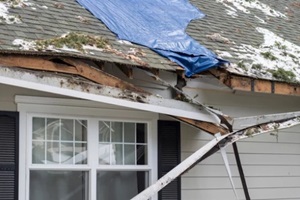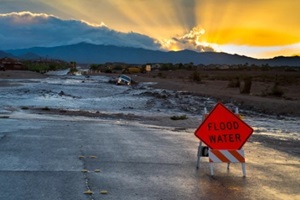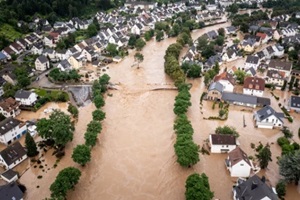
Chicago is known as the “windy city” because it stands in the path of several major air currents, including the jet stream. This location allows strong winds and rain to sweep through the state easily. If you’re an Illinois homeowner, you’re probably aware that this results in over 50 tornadoes every spring.
This weather can wreak havoc on homes, tearing up roofs, breaking windows, and inflicting unpredictable damage. Illinois homeowners must make sure that their homeowners insurance policy covers storm damage. However, not all storm damage is classified in the same way, and some policies may deny coverage for certain types of damage.
Here are some guidelines to help homeowners find the right home insurance in Illinois. This handy knowledge of storm-related home damage can keep your wallet safe year-round.
Types of Storm Damage Covered by Homeowners Insurance
Storms can damage homes and properties in many ways. Yet, a typical homeowners insurance policy does not cover all types of storm damage. These types of damage are usually partially or fully covered:
Lightning Strikes
A lightning strike can directly damage a home and cause incidental damage by starting a fire or causing a power surge. While most policies cover direct lightning strike damage, only some policies provide compensation for property damage related to power surges and outages.
Since most modern homeowners have multiple phones, computers, and gaming devices, power-related equipment damage has become a more significant consideration when choosing an insurance policy.
Water and Ice
Summer storms in Illinois can cause flooding, roof damage, and other water-related issues. In the winter, the combination of wind and humidity can leave roofs and cars encased in ice. According to the Illinois Water Survey, on average, the state gets five severe winter storms every year.
This is the natural result of the state being located directly under low-pressure systems. These frigid arctic air masses drift south as the sun lowers during the winter months. The pressure disturbances lead to freezing temperatures that can ruin piping and destroy roofs.
Homeowners should make sure their insurance policy covers all types of water and ice damage, including collateral damage caused by frozen pipes. Some policies make distinctions between “snow,” “water,” and “ice” damage. Check with your provider to see if your policy covers your home for all forms of inclement Illinois weather.
Wind and Fallen Trees

Even moderate winds can remove shingles and damage walls. As the intense weather continues, the wind-driven rain, snow, and hail can get under the home’s outer protection and cause further havoc on its inner structures.
Wind frequently damages trees, telephone polls, and other standing structures, toppling them onto homes. Notably, trees that fall due to wind are usually covered, while those that fall due to other causes may not be. Check with your provider to learn more about the fine print of your policy regarding wind-related home damage.
Ready To Receive A Quote Today?
Provide us with your contact information, select the type of insurance product you are interested in receiving a quote for and a brief description of your coverage needs! One of our experienced brokers will respond to your request in a timely manner.
Types of Storm Damage Not Covered by Homeowners Insurance
Typically, homeowners insurance policies cover wind, rain, and snow damage. However, not all homeowners insurance policies include an “Act of God” clause, which provides broad coverage for events that are not predictable or within the homeowner’s control.
Illinois homeowners should know what constitutes an Act of God before buying an insurance policy. Many homeowners commonly assume that these circumstances fall under weather-related damage until they are denied a claim.
Earthquake Damage
Earthquakes are an example of storm damage not covered by normal homeowners insurance without an Act of God clause. Covering the earthquake damage to your home’s foundation, property, or belongings usually requires purchasing an additional policy.
Flood Damage
While normal storm damage policies usually cover wind, rain, ice, water, and lightning damage, flood damage is often separated into its own policy, either as separate flood insurance or under an Act of God clause.
Overflowing rivers or excessive storm rains may cause floods, which are often defined as at least two acres of typically dry land or two or more properties being “completely inundated” by water.

Many policy providers draw their own subjective definitions of terms such as “completely,” which is why Illinois homeowners should make sure they are covered for flood damage in addition to water damage when buying a policy.
Research the historical flood maps for your area to determine whether you should prioritize an extra flood policy on your homeowners insurance plan.
Consult Pro Insurance Group for Your Homeowners Insurance Policy
At Pro Insurance Group, our experienced team helps Illinois homeowners get the storm damage protection they need. Our experts will help you learn your options, so you know what’s covered and what isn’t. We want to make sure you select the right coverage for your needs.
If you’re looking for a new homeowners insurance policy or need guidance through the claims process, contact Pro Insurance Group today to consult our experienced insurance advisors and get the help you need.
